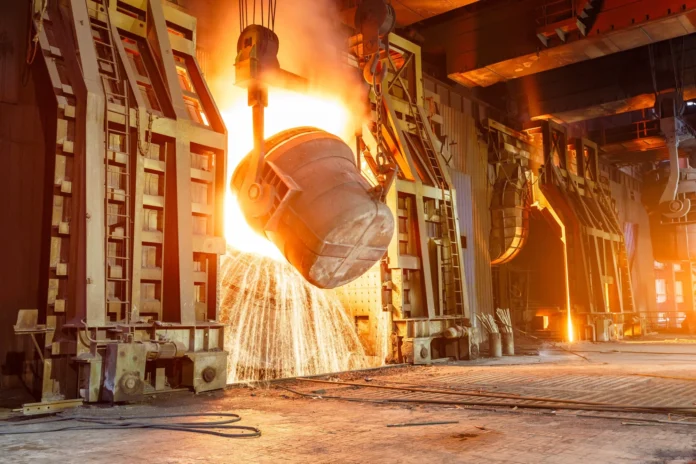Introduction
The debate over Britain’s steel industry is intensifying as discussions continue on transitioning towards electric arc furnaces. With the Government exploring a £2.5 billion strategy to secure the future of steelmaking, concerns arise over the nation’s capacity to produce high-quality, virgin steel. The conversation surrounding this transition is multifaceted, involving not only economic considerations but also environmental goals and geopolitical stability.
The Shift to Electric Arc Furnaces
The industry is gradually moving towards electric arc technology, which relies on melting scrap steel rather than producing it from raw materials. While this shift aligns with net-zero ambitions, industry leaders caution that Britain’s high electricity costs could hinder the efficiency and competitiveness of these furnaces.
Furthermore, the reliance on imported scrap steel raises additional concerns regarding supply chain security and cost volatility. Without a domestic virgin steel production capacity, Britain could become increasingly dependent on global steel markets, making it vulnerable to economic fluctuations and trade policies.
Calls to Preserve At Least One Blast Furnace
Reform UK deputy leader Richard Tice has stressed the strategic importance of maintaining at least one operational blast furnace. He argues that the nation must retain the capability to manufacture the strongest and highest-quality steel, especially for industries requiring robust materials. High-strength steel is critical for sectors such as defense, aerospace, and infrastructure, where imported alternatives may not meet stringent national safety standards. Retaining blast furnace capability would also allow Britain to maintain an industrial advantage, rather than ceding control over a crucial part of its manufacturing base to foreign competitors.
The Economic and Security Implications
The future of British steelmaking carries significant economic and security considerations. The GMB union warns that the ability to produce domestic steel is crucial for national security, ensuring a stable supply of materials amid global uncertainties. A domestic steel industry is vital not only for supporting thousands of jobs but also for safeguarding the supply chain for critical infrastructure projects. Without a local source of high-quality steel, the UK may face severe disruptions in the event of international trade conflicts or resource scarcity.
Government’s Commitment and Investments

Business Secretary Jonathan Reynolds has reaffirmed the Government’s long-term commitment to the steel sector. With major infrastructure projects like Heathrow’s expansion pledging to use British steel, officials believe this will secure industry orders for years to come. The Heathrow project alone could involve 400,000 tonnes of steel, demonstrating the scale of the opportunity available for domestic manufacturers.
Additionally, a consultation is underway to address key concerns, including:
- High electricity costs affecting steel production.
- Unfair trading practices impacting competitiveness.
- Investment strategies for industrial heartlands like Scunthorpe, Rotherham, and Redcar.
- Environmental considerations, balancing net-zero objectives with the practicalities of industrial transition.
- New steel technologies, including hybrid furnaces that blend traditional and modern production methods.
The Role of Policy in Shaping the Industry’s Future
Industry leaders, including UK Steel’s director-general Gareth Stace, stress the need for a collaborative approach in shaping a robust steel strategy. By ensuring an ambitious investment plan, the Government can work towards securing jobs, stabilizing the sector, and protecting Britain’s industrial legacy. Policymakers must consider tax incentives, subsidies, and regulatory frameworks that encourage sustainable steel production while maintaining competitiveness. Without clear governmental support, the shift to electric arc furnaces could become an insurmountable challenge rather than an opportunity for innovation.
Conclusion
As Britain navigates its steelmaking future, balancing environmental goals with economic sustainability remains a challenge. While electric arc furnaces represent innovation, maintaining at least one blast furnace could prove essential for steel quality, national security, and economic resilience. The coming months will be crucial in determining the direction of this vital industry.
The outcome of the Government’s consultation will likely shape Britain’s ability to remain competitive in steel production, influencing job security, industrial growth, and national preparedness for decades to come. By fostering collaboration between policymakers, industry leaders, and trade unions, Britain can carve a sustainable and resilient path forward for its steel sector.


